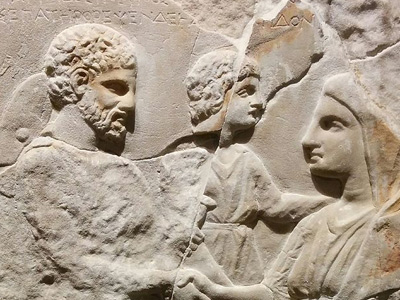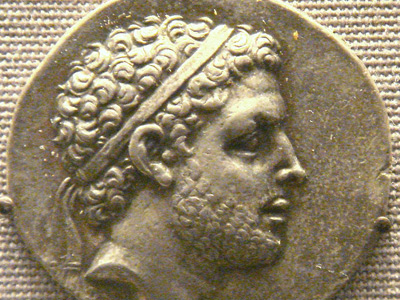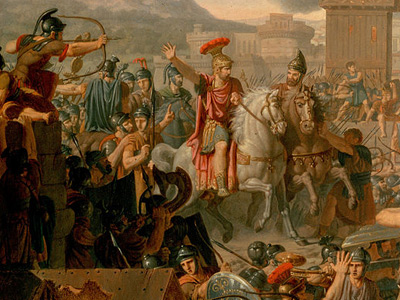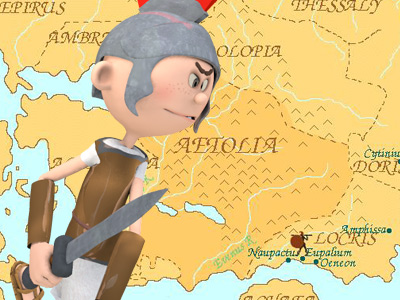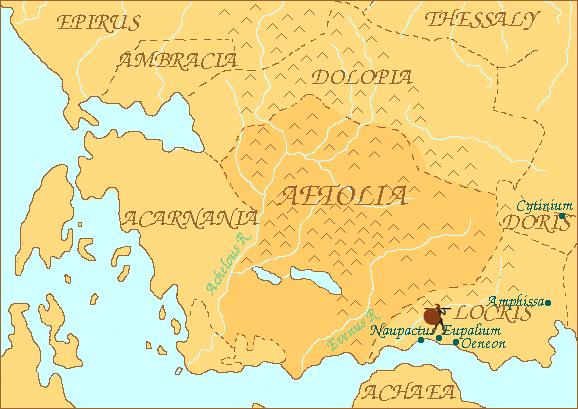First Macedonian War (214–205 BC)
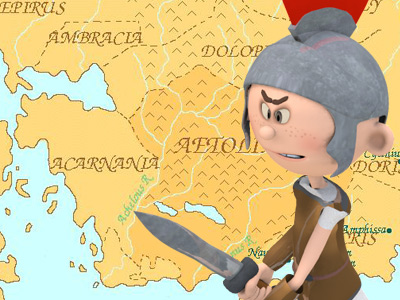
Philip makes peace with Aetolia
Philip, at once began negotiations with the Aetolians. At a conference on the coast near Naupactus, Philip met the Aetolian leaders, and a peace treaty was concluded. Polybius quotes the Aetolian Agelaus of Naupactus as having given the following speech in favor of peace:
The best thing of all is that the Greeks should not go to war with each other at all, but give the gods hearty thanks if by all speaking with one voice, and joining hands like people crossing a stream, they may be able to repel the attacks of barbarians and save themselves and their cities. But if this is altogether impossible, in the present juncture at least we ought to be unanimous and on our guard, when we see the bloated armaments and the vast proportions assumed by the war in the west.
For even now it is evident to any one who pays even a moderate attention to public affairs, that whether the Carthaginians conquer the Romans, or the Romans the Carthaginians, it is in every way improbable that the victors will remain contented with the empire of Sicily and Italy. They will move forward: and will extend their forces and their designs farther than we could wish. Wherefore, I beseech you all to be on your guard against the danger of the crisis, and above all you, O King. You will do this, if you abandon the policy of weakening the Greeks, and thus rendering them an easy prey to the invader; and consult on the contrary for their good as you would for your own person, and have a care for all parts of Greece alike, as part and parcel of your own domains. If you act in this spirit, the Greeks will be your warm friends and faithful coadjutors in all your undertakings; while foreigners will be less ready to form designs against you, seeing with dismay the firm loyalty of the Greeks. If you are eager for action, turn your eyes to the west, and let your thoughts dwell upon the wars in Italy. Wait with coolness the turn of events there, and seize the opportunity to strike for universal dominion. Nor is the present crisis unfavourable for such a hope.
But I intreat of you to postpone your controversies and wars with the Greeks to a time of greater tranquillity; and make it your supreme aim to retain the power of making peace or war with them at your own will. For if once you allow the clouds now gathering in the west to settle upon Greece, I fear exceedingly that the power of making peace or war, and in a word all these games which we are now playing against each other, will be so completely knocked out of the hands of us all, that we shall be praying heaven to grant us only this power of making war or peace with each other at our own will and pleasure, and of settling our own disputes.
HISTORY
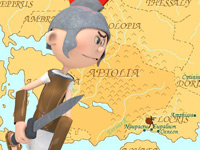
RESOURCES
This article uses material from the Wikipedia article "First Macedonian War (214–205 BC)", which is released under the Creative Commons Attribution-Share-Alike License 3.0.
© Stories Preschool. All Rights Reserved.
